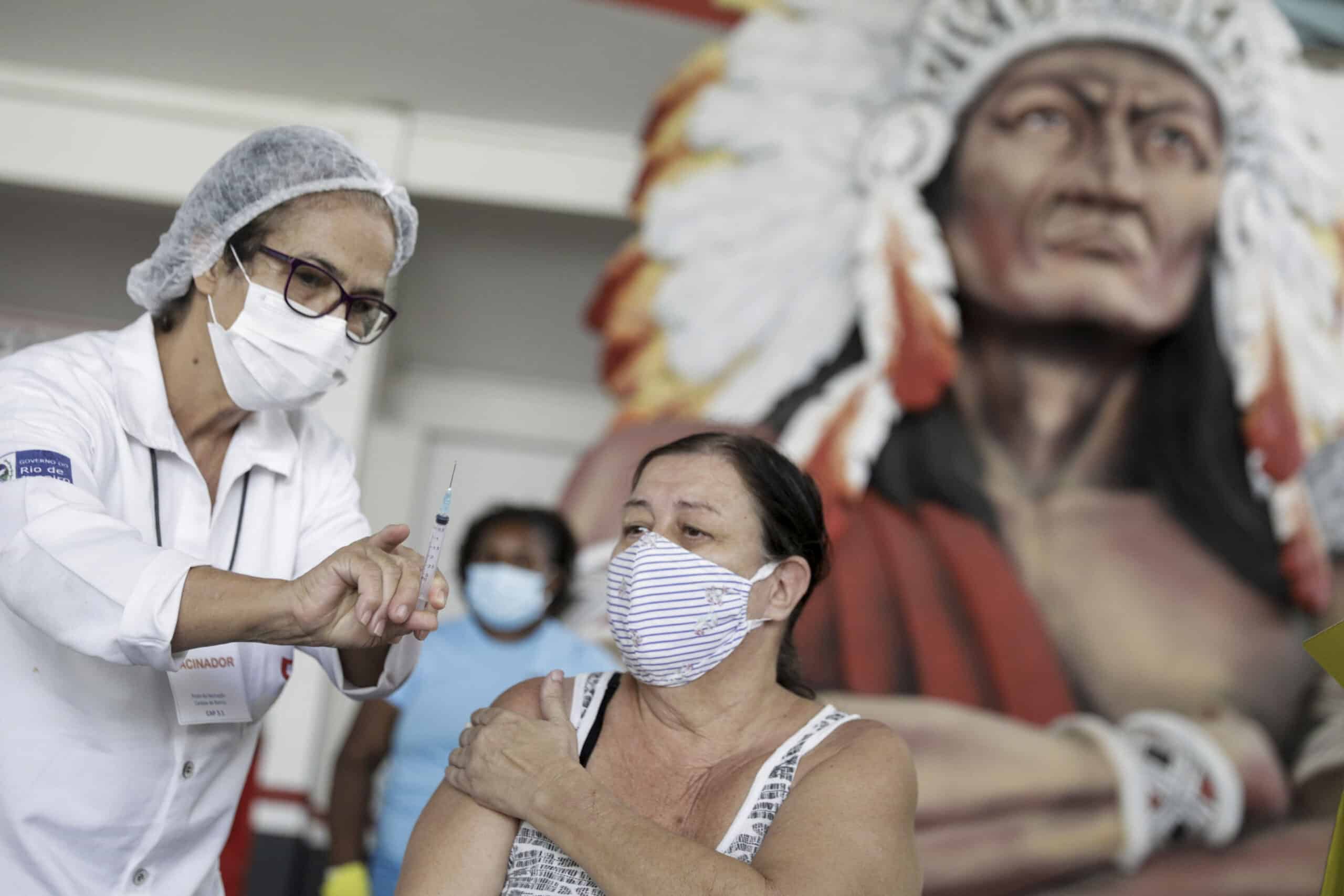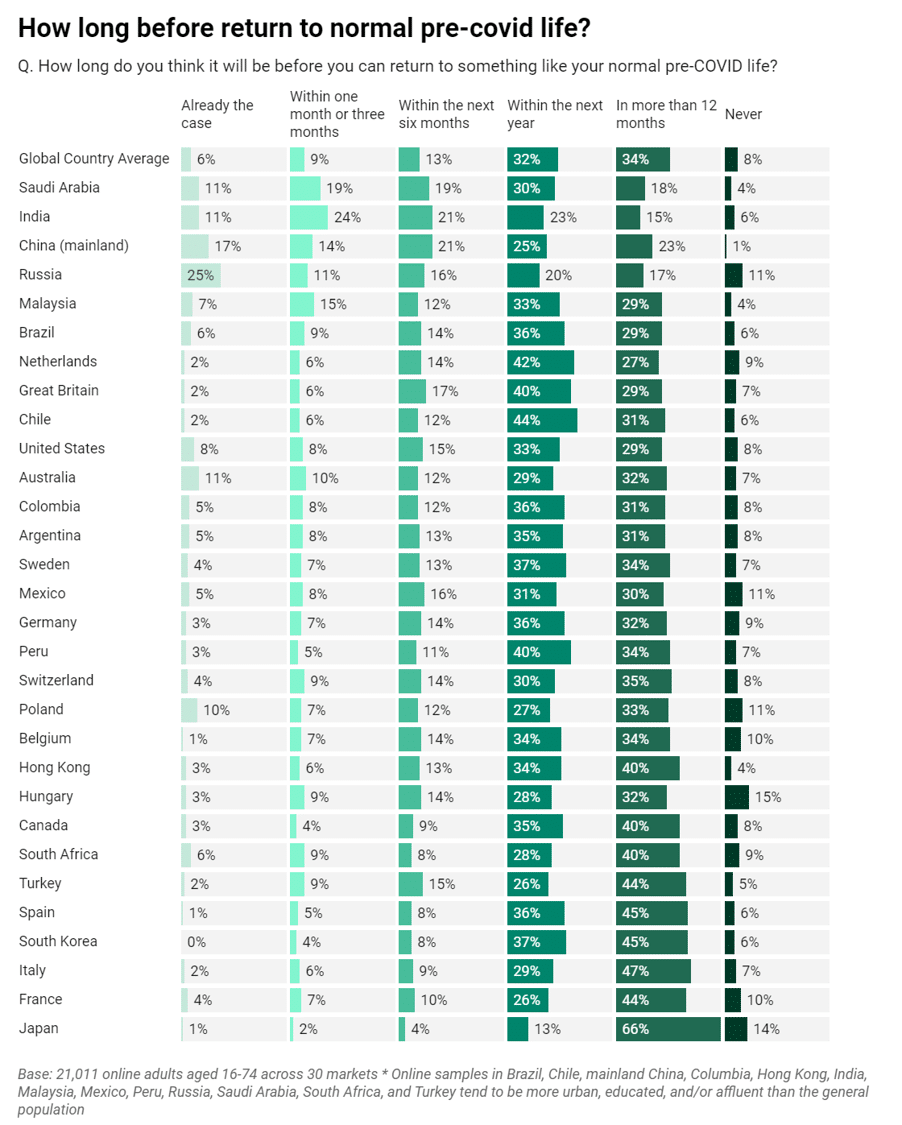While some countries such as the UK are experiencing a loosening of COVID-19 restrictions, others like Brazil are being gripped by rampaging outbreaks that show no signs of abating. At the time of writing, there have been nearly 140 million cases and 3 million deaths globally. But how hopeful are people across the world about when some kind of pre-COVID normality might return?
A new report from the World Economic Forum (WEF) suggests that there is a wide range of differing expectations, depending on where you live in the world and the prevalence of the disease.
People living in China, India, Russia and Saudi Arabia believe it will take a year to return to normal, while Japan, France, Italy and South Korea believe it will take longer. At the top of the confidence index are the Saudis, 70 per cent of whom say they are confident life will return to pre-COVID normal within a year. The most gloomy nation is Japan, where some 80 per cent think it will take longer than a year.
Measured across the world, almost 60 per cent of the 21,000 adults under the age of 75 surveyed by Ipsos for the WEF expect a return to pre-COVID normal within the next 12 months.

Brazil is experiencing surging infection rates. A healthcare worker gives a dose of Sinovac’s CoronaVac COVID-19 vaccine at Cacique de Ramos, Rio de Janeiro, Brazil April 8, 2021. REUTERS/Ricardo Moraes/File Photo
So what’s the implication for our wellbeing of protracted restrictions? The report finds that on average across the 30 countries, 45 per cent of adults say their emotional and mental health has declined since the beginning of the pandemic, three times the proportion of those who say it has improved (16 per cent)
In 11 countries, at least half report a decline in their emotional and mental health with Turkey (61 per cent), Chile (56 per cent), and Hungary (56 per cent) showing the largest reported deterioration.
When considering what type of people have suffered or thrived the most during lockdowns, it seems to depend very much on personal circumstances and wealth. In a UK study carried out by University College London and funded by the Nuffield Foundation, around one third of people say that they have enjoyed lockdown, with most of these coming from more affluent groups.
Cheryl Lloyd, Education Programme Head at the Nuffield Foundation said: “Given that low earners have been most at risk of the negative social and economic consequences of the pandemic it is unsurprising that they have been less likely to enjoy lockdown than those on higher incomes. It is essential the policy response takes steps to reduce inequalities and minimise the longer-term scarring effects of the pandemic on low earners.”
The uptake and roll out of vaccines is considered by most governments to be key to enabling restrictions to be eased more quickly. Maintaining confidence in the various vaccines and increasing a sense of hope appear to be key to keeping up the morale of COVID-weary populations across the world.

Source: Ipsos study commissioned by WEF among more than 21,000 adults under the age of 75 between February 19, 2021 and March 5, 2021 on Ipsos’ Global Advisor online platform.





